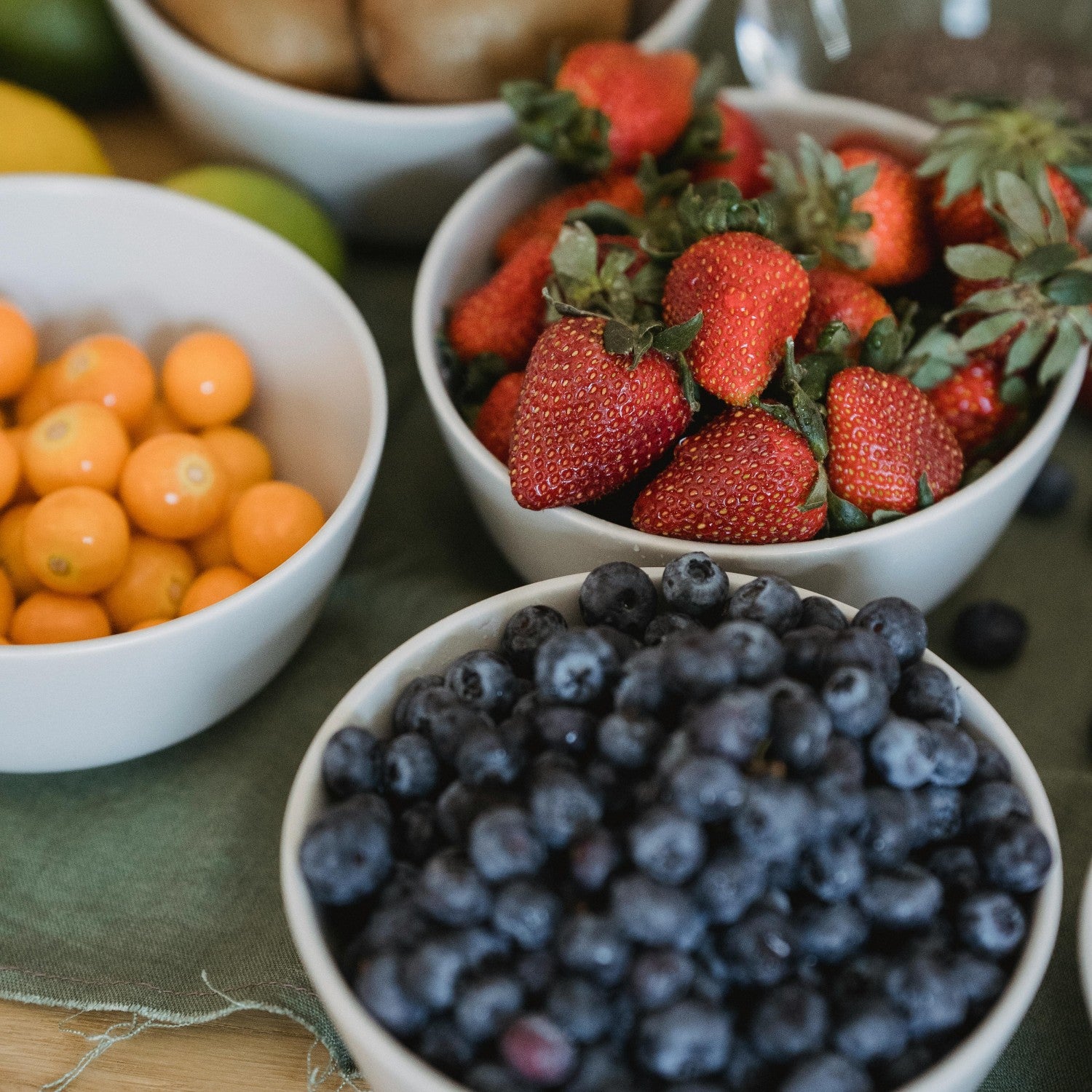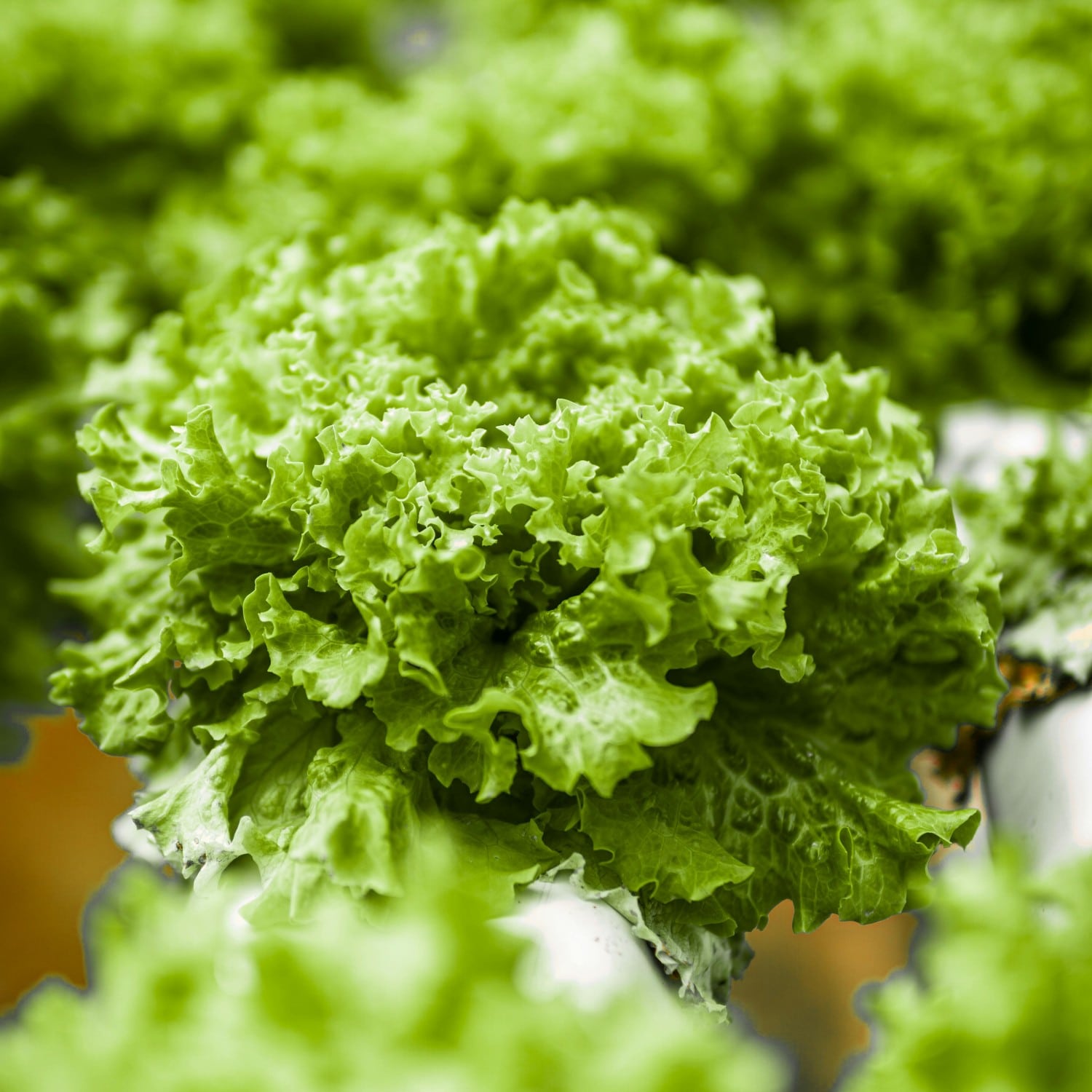When embarking on a weight loss journey, many individuals look for the most effective way to lose weight. One popular approach is to eat more fruits and vegetables as part of a meal plan. Research shows that incorporating these nutrient-dense foods into your healthy eating routine can help you lose weight and reduce the risk of developing chronic diseases.
Fruits and vegetables help keep you full and satisfied, making them a way to lose weight naturally. Adding more fruits and vegetables to help with your weight loss goals can also contribute to a healthy diet overall. It's important to note, however, that following a day fruit and vegetable diet or fruitarian diet may not provide all the nutrients your body needs for sustained fat loss.
While incorporating more vegetables and fruit into your eating plan is a good for weight loss and overall health, it is important to also include other food groups for a well-rounded diet plan.
When trying to lose weight, adding more fruits and vegetables to your meals can be a beneficial strategy. By focusing on whole fruit and vegetable intake, you can help reduce the risk of overeating and gain weight. Fruits and vegetables will add volume to your meals, helping you feel satisfied while consuming fewer calories.
You may also enjoy your favorite dishes by substituting less healthy ingredients with fruits and vegetables for a nutritious twist. However, relying solely on a vegetable diet plan or day fruit and vegetable diet is not recommended for long-term weight management.
It's essential to eat less food overall and focus on creating a balanced and sustainable eating plan that includes a variety of nutrient-dense foods.
Can You Lose Weight Eating Only Fruits and Vegetables?
It is possible to lose weight by eating only fruits and vegetables, but it may not be sustainable in the long run. While fruits and vegetables are low in calories and high in essential nutrients, they may not provide all the nutrients your body needs for optimal health. Eating a variety of fruits and vegetables can help you feel full and satisfied, which may aid in weight loss.
However, solely relying on these food groups may lead to nutritional deficiencies if not carefully planned. To sustain weight loss with a fruit and vegetable diet, it's essential to ensure you are still getting a balanced intake of proteins, fats, and carbohydrates. Incorporating lean proteins like tofu or legumes and healthy fats from sources like nuts and seeds can help maintain muscle mass and keep you feeling satiated.
Additionally, whole grains can provide necessary fiber and energy for physical activities.

What Happens to Your Body if You Only Eat Fruits and Vegetables for a Week?
If you only eat fruits and vegetables for a week, you may experience weight loss due to the reduced calorie intake. Fruits and vegetables are naturally low in calories and high in fiber, which can promote feelings of fullness and aid in weight loss. However, a diet exclusively consisting of fruits and vegetables may lack sufficient protein and fat, leading to muscle loss and fatigue.
Despite the potential weight loss benefits, a strict fruit and vegetable diet for an extended period may result in nutrient deficiencies, particularly in essential vitamins and minerals like vitamin B12 and iron.
Is Eating Fresh Fruit and Vegetable Everyday Good for You?
Additionally, sudden dietary changes can disrupt your digestive system, causing bloating or irregular bowel movements. It is crucial to consult a healthcare provider before embarking on a restrictive diet to ensure you are meeting your body's nutritional requirements.
How Many Fruits and Veggies Should I Eat a Day to Lose Weight?
Ideally, to aid weight loss, aim to consume at least five servings of fruits and vegetables per day. These colorful foods are rich in essential nutrients and fiber, which can help you feel full on fewer calories. By increasing your intake of fruits and vegetables, you may naturally decrease your consumption of higher-calorie foods, leading to weight loss.
Incorporating a variety of fruits and vegetables into your meals can ensure you are receiving a diverse range of vitamins and minerals necessary for overall health. Different colors of fruits and vegetables indicate varying nutrient profiles, so including a rainbow of produce in your diet is beneficial.
Remember to balance your fruit intake due to their natural sugar content, and opt for more vegetables to keep your calorie intake in check while still providing essential nutrients.
What Are the Best Fruits and Vegetables for Weight Loss?
Some of the best fruits and vegetables for weight loss include berries, apples, kale, spinach, broccoli, and cauliflower. These options are low in calories but high in fiber and essential vitamins, making them ideal choices for a weight loss diet. Berries, such as blueberries and strawberries, are rich in antioxidants, while leafy greens like spinach and kale provide iron and vitamins A and K.
Why Are Green Vegetables and Fruits Important for Us?
Cruciferous vegetables like broccoli and cauliflower are not only low in calories but also high in fiber and water content, promoting feelings of fullness.
Additionally, incorporating citrus fruits like oranges and grapefruits can provide vitamin C and aid in digestion. When selecting fruits and vegetables for weight loss, opt for whole, fresh produce over processed or canned options to maximize nutrient intake and minimize added sugars or preservatives.
Here are some fruits and vegetables that are often considered beneficial for weight loss:
- Berries (e.g., blueberries, strawberries, raspberries): Rich in antioxidants, fiber, and relatively low in calories.
- Apples: High in fiber and water content, providing a feeling of fullness.
- Grapefruit: Some studies suggest that grapefruit may have compounds that aid weight loss.
- Leafy Greens (e.g., spinach, kale, Swiss chard): Low in calories and high in nutrients, offering a variety of vitamins and minerals.
- Broccoli: High in fiber, vitamins, and minerals, and low in calories.
- Cauliflower: Versatile and low in calories, can be used as a low-carb substitute for certain foods.
- Cucumber: Extremely low in calories and high in water content, providing hydration and a feeling of fullness.
- Watermelon: High water content can help with hydration and provides a sweet treat with fewer calories.
- Carrots: Crunchy and satisfying, low in calories, and a good source of vitamins.
- Bell Peppers: Colorful and low in calories, they add flavor and nutrients to meals.
Remember, while these fruits and vegetables can be part of a healthy weight loss plan, it's crucial to focus on a well-balanced diet that includes a variety of nutrient-dense foods and incorporates other healthy lifestyle practices, such as regular physical activity and proper hydration.
Additionally, individual dietary needs and preferences vary, so it's essential to find what works best for you.

How Much Weight Can You Lose by Eating Fruits and Vegetables Only?
The amount of weight you can lose by eating fruits and vegetables only depends on various factors such as your starting weight, metabolism, activity level, and overall calorie intake. In general, a diet focused on fruits and vegetables may lead to initial rapid weight loss due to their low-calorie nature and high fiber content.
However, the rate of weight loss may slow down over time as your body adjusts to the new eating pattern.
While eating solely fruits and vegetables can create a calorie deficit, which is essential for weight loss, it's crucial to ensure you are still meeting your body's nutritional needs. Sustainable weight loss typically ranges from 1-2 pounds per week, and incorporating physical activity can further enhance results.
Remember that long-term success in weight management is best achieved through a balanced diet that includes a variety of food groups, regular exercise, and healthy lifestyle habits. Consult a nutritionist or dietitian for personalized guidance on achieving your weight loss goals.
Tips for Sustaining a Fruit and Vegetable Diet Long-term
To sustain a fruit and vegetable diet long-term, consider incorporating a wide variety of produce into your meals to ensure you are getting a diverse array of nutrients. Experiment with different cooking methods such as steaming, roasting, or blending to keep your meals interesting and flavorful. Including sources of plant-based protein like beans, lentils, and nuts can help balance your nutrient intake and keep you feeling satisfied.
It's essential to plan your meals in advance and have healthy snacks readily available to prevent reaching for less nutritious options when hunger strikes.
Additionally, staying hydrated by drinking plenty of water throughout the day can help support digestion and overall well-being. Remember that balance is key, and incorporating a mix of fruits, vegetables, whole grains, and lean proteins can ensure you are meeting your body's needs while working towards your weight loss goals.
How to Maintain Eating a Fruits and Vegetables Diet for 30 Days?
Pacing yourself and making gradual changes to your eating habits can lead to sustainable results and long-term success in maintaining a healthy weight.

